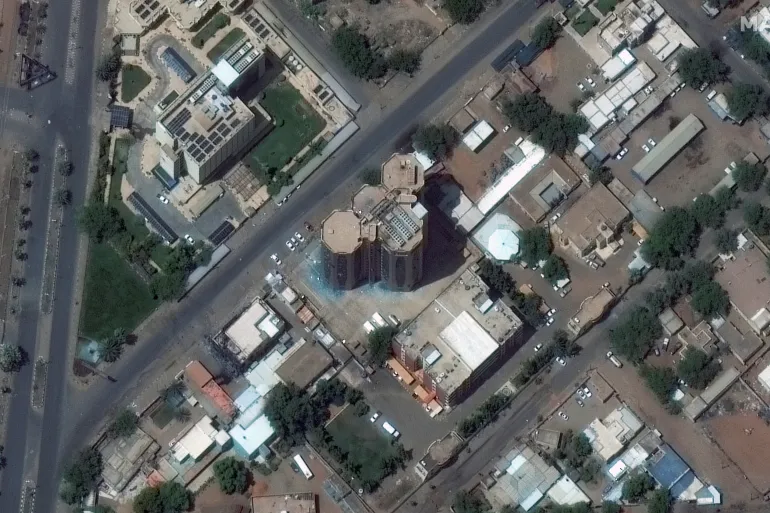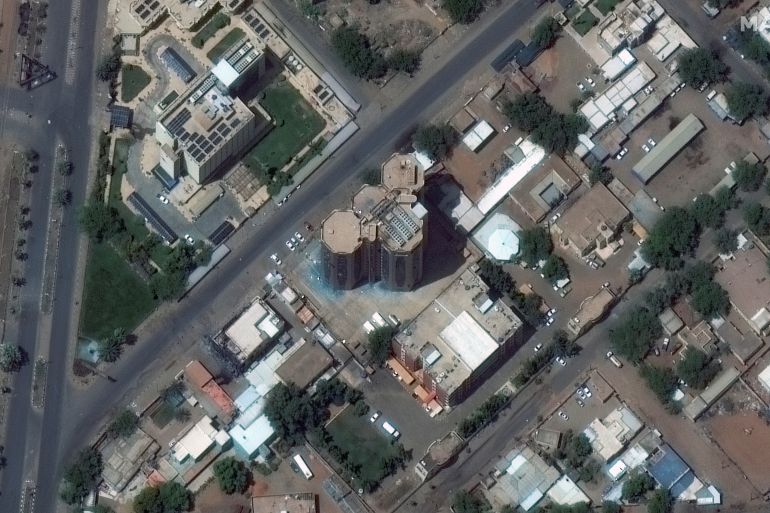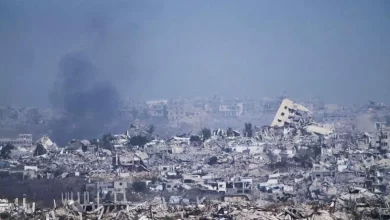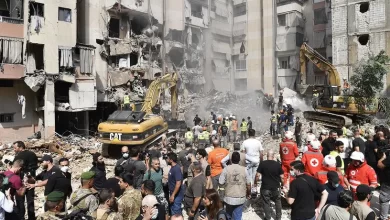Sudan health system overwhelmed as fighting rages on

Nearly 50 health facilities have closed in the capital and surrounding areas since the conflict broke out.

The humanitarian situation is becoming increasingly dire in Sudan with healthcare facilities paralysed after dozens of hospitals were knocked out by the five days of intense fighting.
Nearly 50 health facilities have been forced to close in the capital Khartoum and surrounding areas since the fighting broke out between the army and the paramilitary Rapid Support Forces (RSF) on Saturday, correspondent Hiba Morgan reported on Thursday.
The Central Committee of Sudanese Doctors (CCSD) also painted a grim picture of the medical situation in the country, saying 39 out of 59 hospitals in Khartoum and nearby states were out of service.
Sudan’s Health Ministry had on Wednesday said that 16 hospitals were damaged in the intense fighting that has forced thousands to flee for safety.
Up to 70 percent of the hospitals in Khartoum and neighbouring states have been rendered “out of service” due to the fighting, according to the Sudanese Doctor’s Union, with no hospital in Khartoum able to provide full services.
The World Health Organization warned that hospitals are running out of blood, transfusion equipment, intravenous fluids and other vital supplies, adding that nearly 300 people have been killed and a further 3,000 injured.
Medical workers in hospitals are having to wade through unburied bodies, take cover against bullets raining in through windows, and attempt to work as heavy artillery and shelling pounds areas nearby.
The system ‘will collapse’
Many of Khartoum’s hospitals are concentrated in areas where fighting is under way.
“The hospitals now serving the wounded are so few, with a limited number of doctors, so there’s overcrowding of wounded,” Esraa Abou Shama, a doctor at Sudan’s health ministry, told Reuters news agency.
“Besides, not all the injured can reach the hospital under the gunfire … We honestly need public and private hospitals to open up to provide medical services for all the injured and for all patients.”
Sudan’s healthcare system was already reeling well before the recent conflict, Farid Abdulkadir, head of the delegation, Sudan and Eritrea at the International Federation of Red Cross and Red Crescent Societies told.
Abdulkadir said that due to the uprising in 2019 that toppled former President Omar al-Bashir, and the COVID-19 pandemic that began shortly afterwards, the system was constantly put under pressure.
With this week’s events, “the healthcare system has taken a big blow”, he said.
As staff continue to be overworked and are increasingly unsafe, the system “will collapse,” he added.
A fourth ceasefire that could have helped the wounded get medical assistance and humanitarian organisations provide relief to civilians did not hold on Wednesday, as Sudan’s army and the RSF continued fighting.
Each side has blamed the other for failing to uphold a truce.







